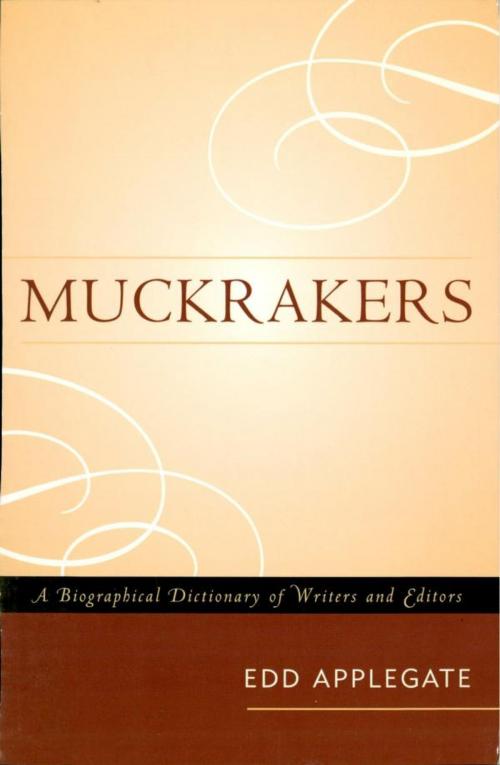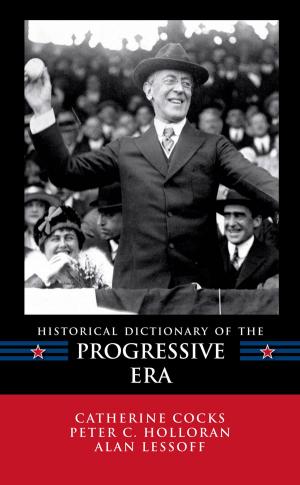Muckrakers
A Biographical Dictionary of Writers and Editors
Nonfiction, History, Reference, Biography & Memoir, Literary| Author: | Edd Applegate | ISBN: | 9781461669753 |
| Publisher: | Scarecrow Press | Publication: | April 18, 2008 |
| Imprint: | Scarecrow Press | Language: | English |
| Author: | Edd Applegate |
| ISBN: | 9781461669753 |
| Publisher: | Scarecrow Press |
| Publication: | April 18, 2008 |
| Imprint: | Scarecrow Press |
| Language: | English |
During the 1800s, the United States progressed at a remarkable rate. Commerce gave rise to regional specialization and contributed to the growth of cities. By 1860 the nation had prospered to the extent that it no longer depended on Europe to purchase its goods. Innovations in technology helped increase production, especially in textiles, and transportation projects helped reduce costs of certain products. As the country progressed, so did its citizenry and their attention to certain interests: movements on issues like women's rights, capital punishment, workers' rights, education, and mental health swept across the country. As these groups advanced their causes, a kind of journalism began to capture readers' attention: the exposZ. Although examples similar to it had appeared occasionally in various publications years before, it became more prevalent at the turn of the century. In the spring of 1906, President Theodore Roosevelt delivered a speech in which he compared certain crusading journalists to a character in John Bunyan's Pilgrim's Progress: 'There is filth on the floor, and it must be scraped up with the muckrake; and there are times and places where this service is the most needed of all the services that can be performed.' In Muckrakers: A Biographical Dictionary of Writers and Editors, Professor Edd Applegate profiles the men and women who either wrote muckraking journalism or edited publications that featured muckraking articles. Some of the most important figures of journalism are here, including Nellie Bly, Upton Sinclair, Lincoln Steffens, George Kennan, Jack London, Frank Norris, Rachel Carson, George Seldes, and I.F. Stone. The book contains more than fifty entries, each discussing the subject's professional career and major works. In some cases, comments about the subject's work by others have been included, as well as suggestions for further reading. As a resource guide, Muckrakers will be of interest to professors, scholars, and students interested in learning more about the individuals who played such significant roles in muckraking journalism.
During the 1800s, the United States progressed at a remarkable rate. Commerce gave rise to regional specialization and contributed to the growth of cities. By 1860 the nation had prospered to the extent that it no longer depended on Europe to purchase its goods. Innovations in technology helped increase production, especially in textiles, and transportation projects helped reduce costs of certain products. As the country progressed, so did its citizenry and their attention to certain interests: movements on issues like women's rights, capital punishment, workers' rights, education, and mental health swept across the country. As these groups advanced their causes, a kind of journalism began to capture readers' attention: the exposZ. Although examples similar to it had appeared occasionally in various publications years before, it became more prevalent at the turn of the century. In the spring of 1906, President Theodore Roosevelt delivered a speech in which he compared certain crusading journalists to a character in John Bunyan's Pilgrim's Progress: 'There is filth on the floor, and it must be scraped up with the muckrake; and there are times and places where this service is the most needed of all the services that can be performed.' In Muckrakers: A Biographical Dictionary of Writers and Editors, Professor Edd Applegate profiles the men and women who either wrote muckraking journalism or edited publications that featured muckraking articles. Some of the most important figures of journalism are here, including Nellie Bly, Upton Sinclair, Lincoln Steffens, George Kennan, Jack London, Frank Norris, Rachel Carson, George Seldes, and I.F. Stone. The book contains more than fifty entries, each discussing the subject's professional career and major works. In some cases, comments about the subject's work by others have been included, as well as suggestions for further reading. As a resource guide, Muckrakers will be of interest to professors, scholars, and students interested in learning more about the individuals who played such significant roles in muckraking journalism.















